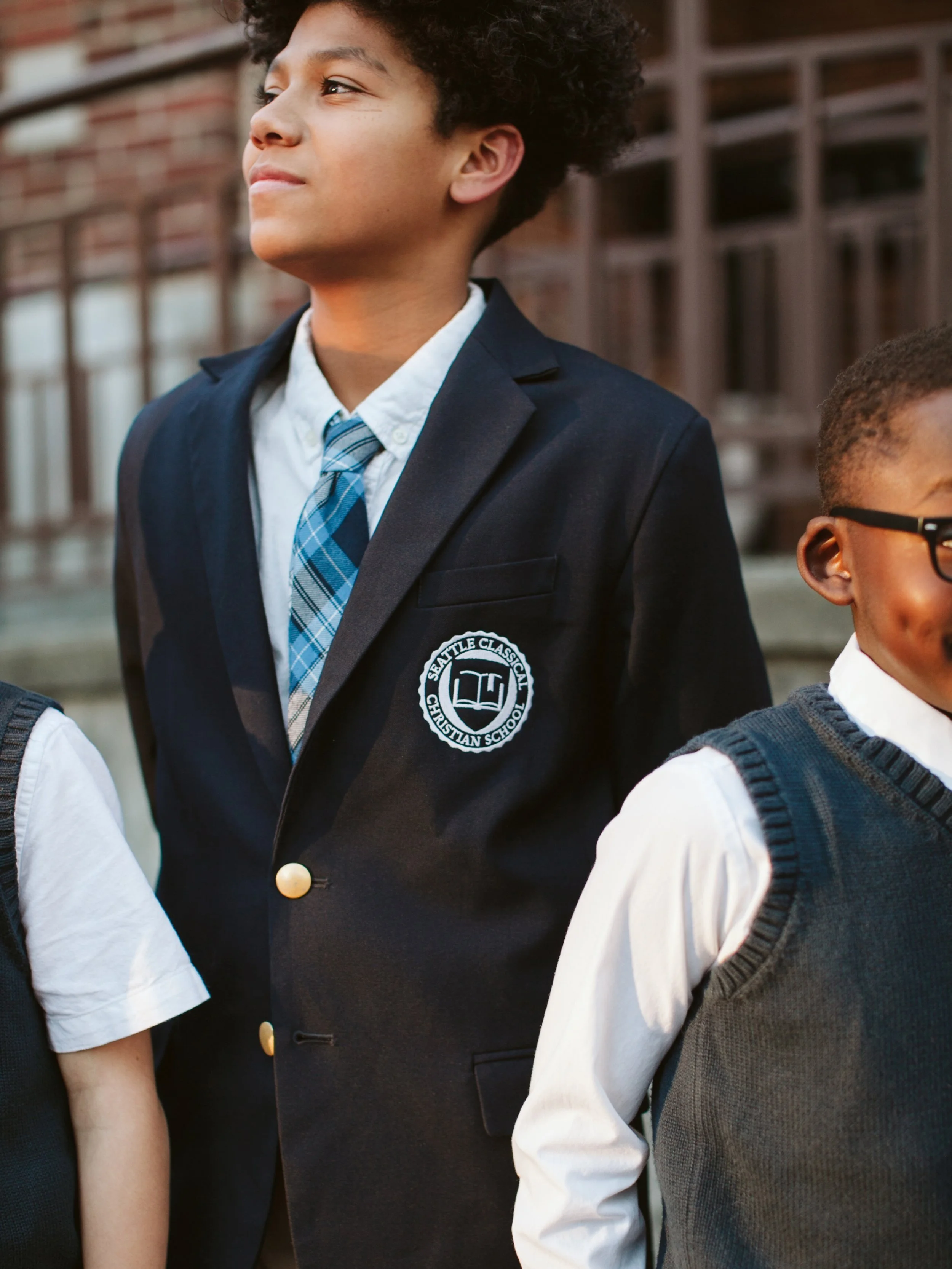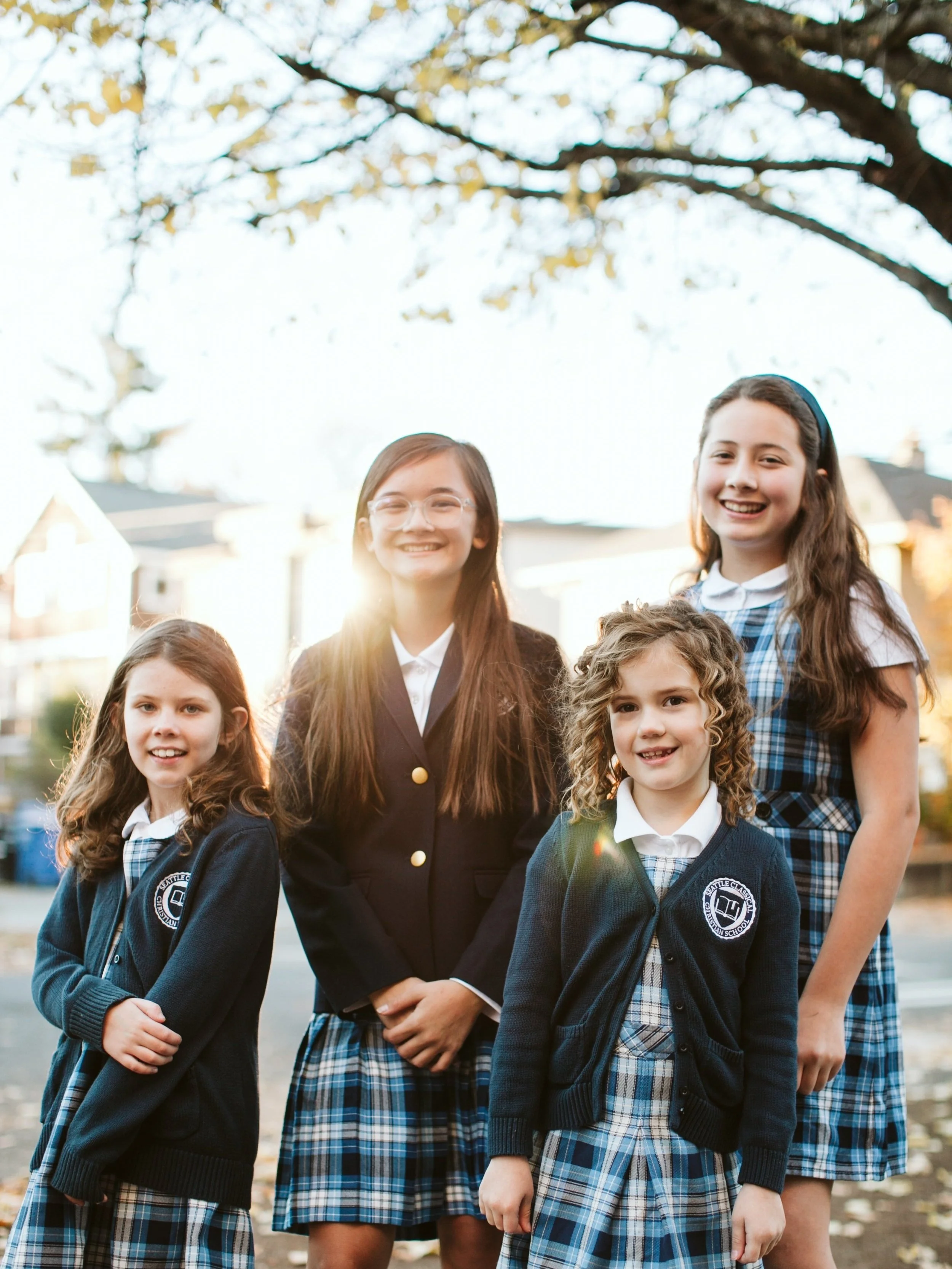This policy outlines the appropriate actions whenever there is a school improvement idea, dispute, or grievance concerning any aspect of SCCS’s operations, between any two parties connected in a direct way to the school. This includes students, parents, staff, volunteers, administration, and Board. It is understood that if any disputes arise that are not covered by this policy, the Head of School and Board will decide what procedures to follow based on a parity of reasoning from those procedures established by this policy.
PHILOSOPHY
It is our desire that our community handle conflicts in a manner that aligns with our student expectations: we focus on what is good, true, and beautiful (Philippians 4:8), make allowance for other’s faults (Ephesians 4:2-3), take responsibility for our own actions (Matthew 7:1-4), and handle conflict without slander (Proverbs 10:18) using a biblical approach (as outlined in Matthew 18:15-17 and James 3).
Even when we approach discord, we strive to honor those who serve sacrificially, work diligently, and love with integrity. Scripture encourages us all to honor those who work hard on our behalf (1 Thessalonians 5:12) especially those who look out for Christ’s and other people’s interests (Philippians 2:21).
GOALS
The goals of this policy are to:
Outline who to approach for which specific concerns.
Facilitate honest, open communication that honors all parties.
Clearly identify the next steps after feedback has been made.
COMMUNICATING YOUR CONCERN
We expect our community to pursue communication that is clear and honoring to all parties. The best way to communicate your concern is to speak directly with the appropriate person. Please email that person directly to set up a time to discuss the concern in person. Within your initial email, please be sure to be clear about:
The details and scope of the concern (What has led to this? Who is involved? Is this an ongoing issue or a one-time event?)
Refer to SCCS policies and values to consider how to best speak about this concern.
Share what kind of response you believe would be appropriate keeping in mind the needs of all parties (consider both immediate concern and future prevention, if appropriate).
Show honor to all parties involved by seeking to express some form of gratitude amid challenges.
WHAT YOU CAN EXPECT
You should expect a response within 3 business days, acknowledging your concern and setting up the next steps (whether that’s scheduling a meeting to discuss further or an immediate action that can be taken).
WHO TO CONTACT
Our grievance procedure should be a relationship-building exercise. Our policy is that you always approach the immediate party of concern as a first step (this may be a teacher, administrator, or Head of School, depending on the scope of the concern).
If escalation is necessary because the issue has not been resolved, reach out to the Head of School via email. He will include all necessary parties in the resolution. Again, our policy is to always begin with the immediate party and resist the temptation to fast-track escalation. We emphatically desire to address concerns in a timely and appropriate manner, and we want to create trust, build relationships, and honor one another along the way.
For concerns with:
Teachers or Aides:
All concerns about the classroom should be addressed directly to the teacher, in a manner aligned with the philosophy outlined above. If the student is mature enough, they should be involved in a respectful conversation with the teacher.
If the concern arises from the character or competence of the teacher/aide, then the parents or student may bring the concern to the Head of School via email. The Head of School will involve the Grammar or Logic and Rhetoric Principals in the plan for addressing concerns.
If you have initiated a concern with a teacher/aide and do not feel that it has been appropriately addressed, please escalate the concern to the Head of School via email. The Head of School will involve the Grammar or Logic and Rhetoric Principals in the plan for addressing concerns. Students may be involved in this escalation, with appropriate maturity and parental permission.
The Administration:
All concerns about an administrative issue should be addressed directly to the responsible Director, in a manner aligned with the philosophy outlined above. If the scale of the concern is larger, or if you are unsure who the right person to contact, you should bring their concerns directly to the Head of School via email. He will involve the appropriate parties in the resolution of the concern.
If the concern arises from the character or competence of the Head of School, then that concern should be brought directly to the Board by emailing the Board. Concerns may also be escalated to the Board if the Head of School is not following clear policy or protocols.
This procedure applies to all faculty, staff, and board members who are acting in their capacity as parents/patrons.
As a Volunteer:
If you have a concern about the volunteer work or a situation as a volunteer, please address it directly Kim Arthur. If you have initiated a concern to your point of contact and are dissatisfied with the response, you can escalate the matter to the Head of School.
(Updated November 3, 2023)



